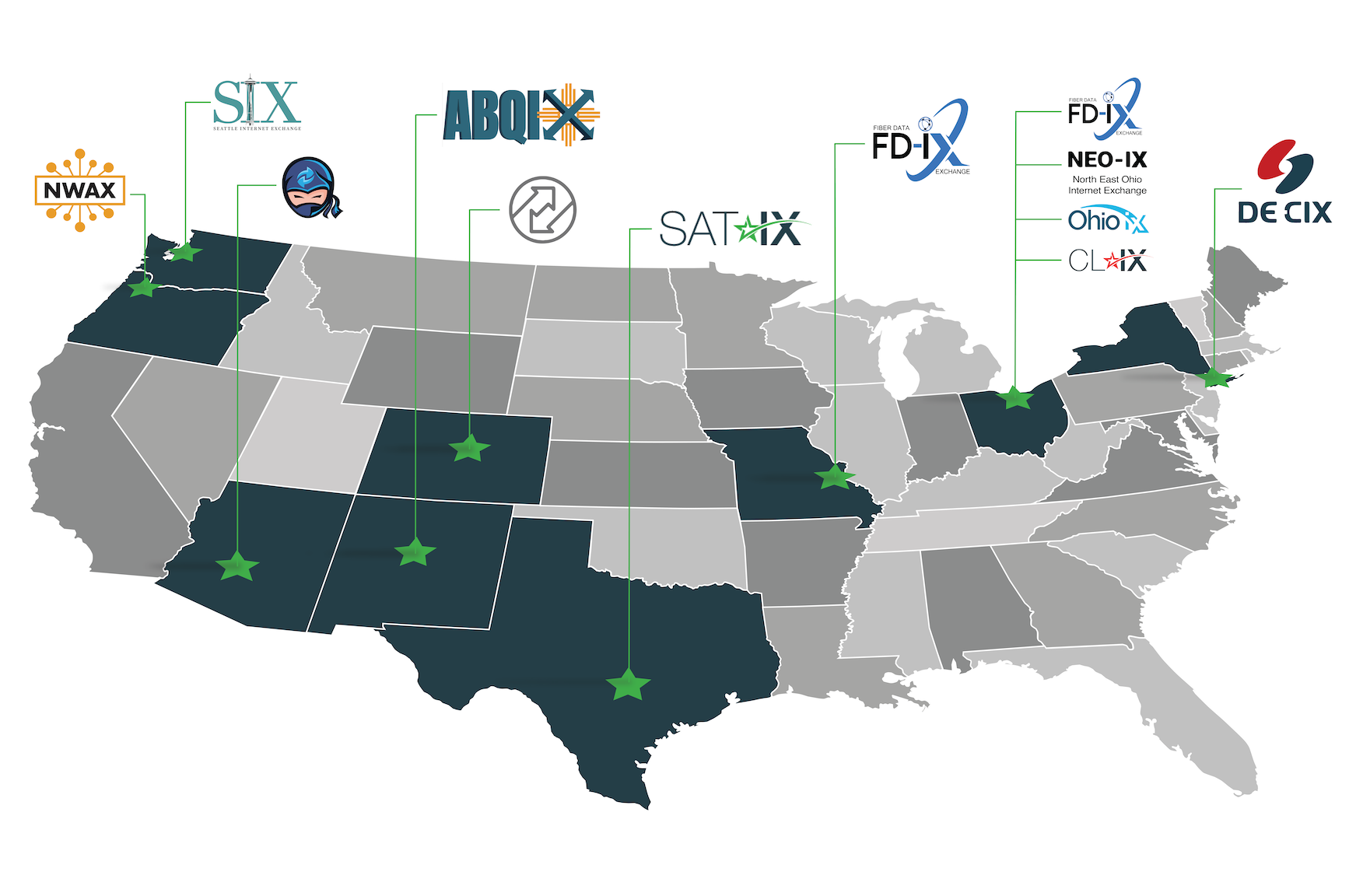Peering-Internet Exchange Access
Peering - Internet Exchange Access
H5 Data Centers can offer your network access to a variety of Internet exchanges across the United States. Cloud service providers, communications carriers and content delivery networks (CDNs) can benefit from accessing a neutral Internet exchange.
Benefits of peering on a neutral Internet exchange
- Manage cross connection expenses
- Reduce wholesale IP capacity requirements
- Scale Internet traffic capacity quickly
- Improve network resilience and reliability
- Better manage and reduce latency
- Peer with many networks over a single physical port
- Access a route server to simplify peering connections and configurations
- Peer with networks that may not be on an initial consideration set
What is peering?
Internet peering is the exchange of Internet traffic, paid or unpaid, between two or more networks.
How does Internet peering work?
Each participant on an Internet exchange subscribes to a port speed (usually 1 Gbps, 10 Gbps or 100 Gbps). Participants can then "peer" or exchange Internet traffic between each other, depending on each participant's peering policy, without having to pay a third-party intermediary or wholesale Internet provider to carry such Internet traffic for them.
What is BGP-4 routing?
Border Gateway Protocol Version 4 (BGP-4) routing is the current routing protocol used for the Internet and peering. It is a distance-vector algorithm using Transmission Control Protocol (TCP) as its transport protocol. BGP peers exchange routing tables and the differences or deltas are then exchanged.


